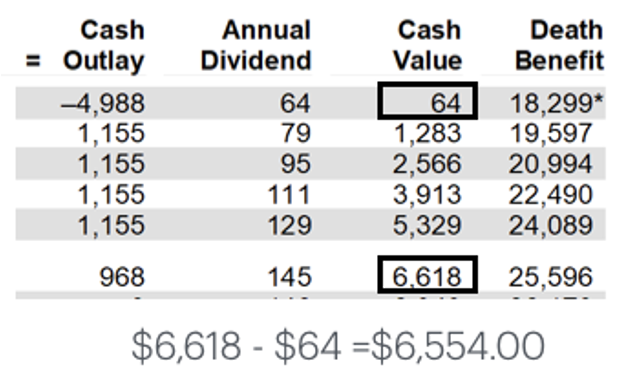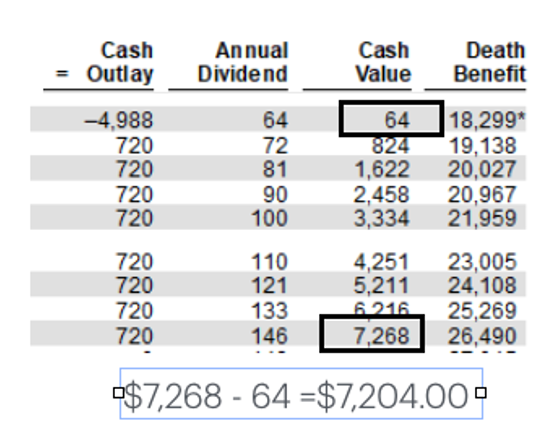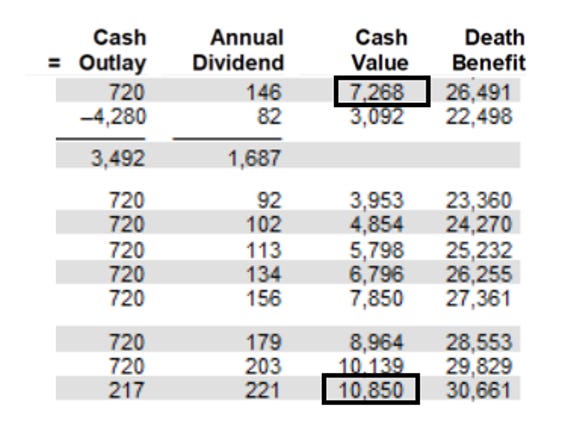Infinite Banking: Borrow From Yourself
A question commonly asked about Infinite Banking is,
· “Why would you ever want to borrow money from yourself?”
This rhetorical question conjures up erroneous ideas about what Infinite Banking is by making it out to be a fool’s paradise instead of the exceptional cash flow management system it really is.
The Infinite Banking Process doesn’t require you to borrow money from yourself. It never has and never will. Instead, Infinite Banking is about managing money in a unique way so that you can recover the cost of things financed and enjoy additional compounding growth on your own money while doing so.
Everything purchased is financed, either by giving up interest you could have earned on money spent or paying interest on borrowed money. Recovering the cost of finance using the Infinite Banking Process is an exceptional way to manage your cash flow, and in doing so, allows you to keep more of the money you make.
As nobody wants to keep less of the money they make, Infinite Banking appeals to those who understand this simple fact:
· Infinite Banking leverages paid-up insurance in participating whole life insurance by using it as collateral. This gives the policyholder a guaranteed right to access the Insurance Company’s money without giving up the guaranteed compounding growth the policy contract guarantees the policyholder, in addition to any dividends the Insurance Company shares with the policyholder.
This is a colossal difference from “Borrowing your own money”, as can be seen below.
If you borrow $4,988 from yourself or your savings, then compounding growth is no longer earned on the money borrowed. If you pay yourself back for this loan at 5% annually over 5 years, then you will end up directing $5,760.50 back to yourself or your savings. If your savings is earning a high interest rate of 4%, then at the end of 5 years you will have accumulated $6,240.15. If you aren’t putting the money back into this high interest saving account, then you will only have the $5,760.50 which you repaid yourself.
When you borrow $4,988 from an Insurance Company, leveraging your participating whole life insurance, and repay it at 5% over 5 years, you will pay $5,588 not $5,760.50 because the compounding growth of the policy is helping you repay this policy loan. The compounding growth will also provide another $966 of cash value, meaning you will have $6,554 of additional cash value from the time you took your $4,988 policy loan. This is like earning a 6.34% return on the loan payments you made back to the Insurance Company.
Now suppose you were needing to purchase a Husqvarna TS 348XD 48-inch deck garden tractor from Tractor Supply with that $4,988. And you wanted to make the loan repayments a bit more comfortable to match your current cash flow. Then all that is required with Infinite Banking is for you to reduce your payments back to the Insurance Company to a more comfortable $720 annually, instead of $1,155, and extend the loan to 8 years instead of 5. What you end up with is $7,204 in extra cash value instead of $6,554. Such a simple and easy way to manage your cash flow while accumulating more money for you to manage, is not readily available when borrowing money to finance from banks, your IRA, 401(k) or margin account. And people who finance by paying cash never have the opportunity to earn compounding growth on the money they pay up front when making their purchase(s). Reducing the loan repayment to a savings account which is compounding annually at 4%, would accumulate just $6,634, not $7,204. But Infinite Banking allows you to generate this extra 8.59% money while keeping your cash flow (repayments) identical to what would be directed to your savings account.
Now what happens if you want to continue further with Infinite Banking and borrow $4,280 against this same participating whole life policy immediately after paying off your initial $4,988 loan?
1. You simply ask the Insurance Company to make the $4,280 deposit into your checking account.
2. Then you pay this policy loan back like you did the first policy loan.
3. In this case, your payment will be $60 per month ($720 per year) for 7 years and 3 ½ months and you will have $10,850 in cash value. This is $7,758 more than the $3,092 of cash value when you took this second loan for. $4,280, and $554 more cash value than the growth after the first policy loan. It is also $2,501 more than the $5,257 you paid in interest and principal for this second policy loan of $4,280.
Banks keep leveraging the money people have deposited in their bank. By lending depositors’ money out multiple times, banks increase their profits using the same money over and over. Banks don’t lend their own money but instead lend out their depositors’ money. Infinite Banking doesn’t mean you borrow money from yourself, instead you borrow money from the Insurance Company and make profits by lending it to others or using the borrowed money to recover the cost of finance on the things you purchase. The more Infinite Banking is put to use, the more profits it generates for you, just like a bank increases their profits by loaning the same dollar out multiple times.
From this you can see borrowing from yourself is NOT Infinite Banking. Borrowing from yourself and paying it back requires the same discipline it takes for Infinite Banking but borrowing from yourself is not as profitable as Infinite Banking.
Whether you finance your major purchases with a loan from yourself, your savings or by leveraging participating whole life insurance makes a significant difference in how much money ends up in your pocket at the end of the day. Infinite Banking is admired and valued by those who utilize it to finance things they purchase in life because they know Infinite Banking not only returns the money they spent, but it takes better than average care of the money (cash values) being leveraged, while they are using the Insurance Company’s money to finance the things they purchase.
To learn more about Infinite Banking subscribe to the Wealth Talks podcast where we talk about money, finances, Infinite Banking and how to generate wealth.




